No one wants to get sick
So you’re getting your flu shot and carrying around some wipes to keep you hands clean. But you have a sneaking suspicion that won’t be enough to keep you healthy this winter. You could be right—so put these expert tips to use and give yourself even more of an advantage against the winter’s viruses.

Go for a fist bump
The next time someone approaches you with palm outstretched, try a fist bump or air kiss instead. “Shaking hands may be a social expectation, but it is also an excellent method of transferring germs from one person to another,” says J.D. Zipkin, MD, at GoHealth Urgent Care. That’s why Harvard Medical School alternately suggests a fist bump, which in a study transferred 90% fewer germs than a handshake.”While avoiding a handshake is not always socially feasible, hand-washing afterward will kill any germs you picked up,” Dr. Zipkin says. In addition, if you can’t avoid the handshake, don’t touch your face afterward to prevent germs on your hands from migrating to your nose and mouth. Find out the clear signs a cold is coming.
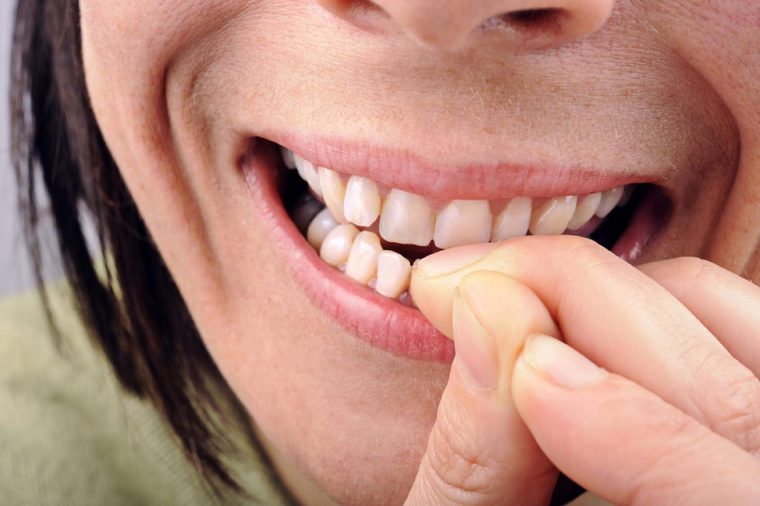
Stop biting your nails
Studies have shown that biting your nails is another great way to transfer germs on your hands to your mouth. “Nail-biting can be a difficult habit to break, but doing so comes with several additional benefits including reducing the frequency that you bring your hands to your face, especially the entry points for illness such as the nose and mouth,” Dr. Zipkin says. “This reduces the risk of getting sick.” Learn the other common habits that are making you sick.
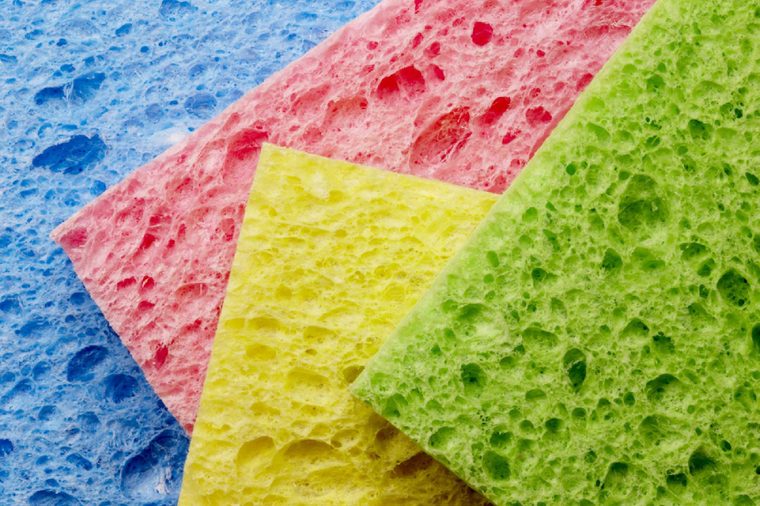
Blast your sponges in the microwave
Keep your kitchen sponge germ-free by nuking it on full power for two minutes daily. This kills 99% of micro-organisms, according to a University of Florida study. “People often put their sponges and scrubbers in the dishwasher, but if they really want to decontaminate them and not just clean them, they should use the microwave,” says the study author, UF professor Gabriel Britton, PhD. “The microwave is a very powerful and an inexpensive tool for sterilization.” But, a warning: Do this only with a damp sponge or cloth—otherwise it’s a fire risk. Here are more things in your house that could be making you sick.

Take a walk
One study showed that post-menopausal women who took regular, moderate exercise—brisk walking for 45 minutes, five times a week—had up to a three-fold reduction in the number of colds they suffered compared with women who didn’t exercise. “Moderate exercise, 30 to 60 minutes per day, seems to boost the production of white blood cells, which may enhance the immune response,” says fitness expert and registered dietitian Erin Palinski-Wade, RD, CDE, author of 2 Day Diabetes Diet. But, “very intense exercise, such as running a marathon, may weaken the immune system and increase the risk of getting sick.” Try these other simple habits to naturally boost your immune system.

Clean surfaces at work, as well as at home
The U.S. Centers for Disease Control and Prevention recommends regularly cleaning frequently touched objects and surfaces to prevent the spread of germs like the flu. Cleaning means removing germs; you can also use a disinfectant to actually kill the germs that are left. “Common shared surfaces such as doorknobs, TV remotes, keyboards, toilets, faucets, and light switches should be wiped down with wipes that can kill germs,” Dr. Zipkin says. Other culprits include telephones, computer keyboards, kitchen surfaces, and cleaning cloths.

Get your zzz’s
Getting less than the National Sleep Foundation’s recommended seven to nine hours of sleep daily can make your body more vulnerable to illness. “Sleep is an important part of overall health, and insufficient quality sleep can increase susceptibility to infection,” Dr. Zipkin says. “Studies have shown that the body does not create as many immune cells and proteins with decreased sleep.” These are more ways you’re unknowingly sabotaging your immune system.
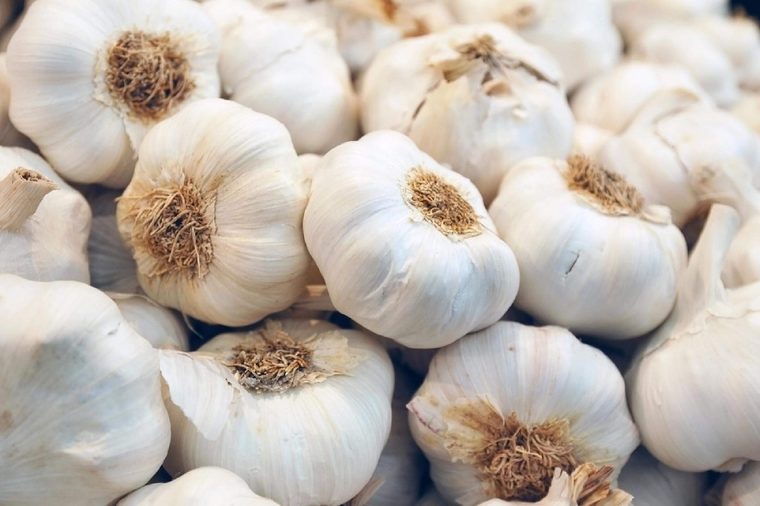
Fight it with garlic
Garlic doesn’t just ward off vampires—it may help keep sickness at bay, too. In a study at the Garlic Centre in East Sussex, half of the participants were given a garlic supplement daily and the other half a placebo. During 90 days of winter, those taking garlic had a total of 24 colds, compared with 65 among those on placebo. People taking garlic supplements who did catch a cold also had a shorter duration. “Compounds found in garlic have been found to boost the response of white blood cells in the body to fight against viruses,” Palinski-Wade says. It can’t hurt to try adding more to your diet. Eat these other foods to prevent colds and flu.
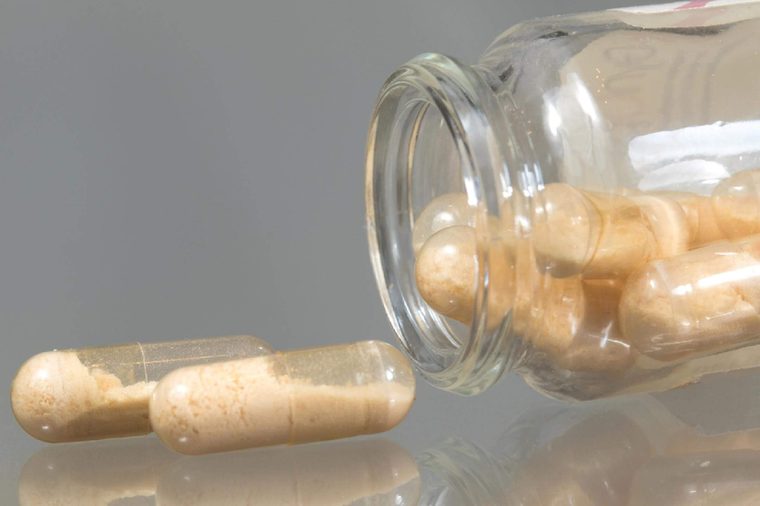
Use probiotics
“It is estimated that 80% of the immune system is based in the gut, so having a variety of healthy gut bacteria may enhance the immune system, allowing you to better fight off common infections and illnesses,” Palinski-Wade says. “Taking a probiotic that provides a variety of healthy bacteria strains may aid the immune system.” Research supports this—in one small study, the number of participants who didn’t get sick when taking probiotics was more than double those who took a placebo. Probiotics are one of the things that need to be part of your DIY flu-fighting kit.

Get your fiber
In addition to probiotics, consuming prebiotics, which feed your gut bacteria, could give your immune system a boost, according to research. “Aim for a minimum of 30 grams of fiber every day from whole foods,” Palinski-Wade says. “Fiber-rich foods provide a source of prebiotics, or food, to the bacteria in your gut, which may help to increase the variety of healthy bacteria strains, supporting a healthy immune system.” On the other hand, these foods can make your cold or flu worse.
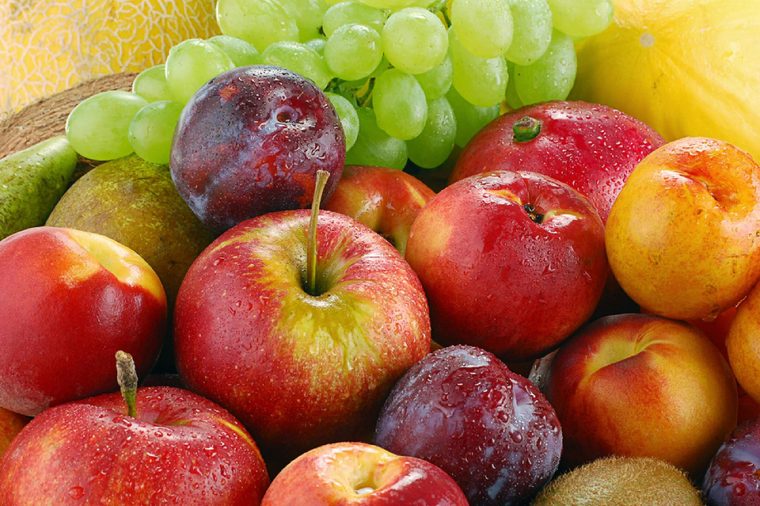
Load up on fruits and veggies
Brightly colored fruits and vegetables contain antioxidants that may help keep your immune system strong. One study showed that participants who consumed flavonoids, components in plants including apple and berries that act as antioxidants, were 33 percent more protected from colds. “Antioxidants such as vitamin C can help to fight against infections and speed recovery time,” Palinski-Wade says. “Eating a variety of fruits and vegetables each day can ensure your diet is rich in antioxidants.” Also, try these other immunity-boosting foods you need to fight off the flu.

Look on the bright side of life
Research shows stress can negatively affect your immune system. “Stress increases the hormone cortisol, which perches us in a state of high octane alert, and as a result, our heart rate and blood pressure become overtaxed, which causes a dip in our immune functioning,” says psychologist Deborah Serani, award-winning author of Living with Depression. “When this happens, we become more susceptible to bacterial and viral infections, so we get sick more easily.” On the other hand, a sunny outlook has been shown to ward off illness, and even make the flu vaccine more effective.

Stay hydrated
The common advice for treating colds is to drink fluids to “flush out” germs. Although research isn’t clear on whether this actually works, hydration is needed to keep your body functioning optimally, according to the American Academy of Family Physicians. “Staying hydrated may help to enhance your body’s ability to fight off infection,” Palinski-Wade says. “Aim for eight glasses of water per day as a minimum.” In addition, try these natural remedies for colds and flu that really work.

Spend time outside
Cold air can dry out your nose and throat, making them more susceptible to infection. But the bigger reason why we get sick in cold weather may be because we spend more time indoors, in close quarters with other people, according to research. “One of the many factors that contribute to the increased rate of getting sick in the winter is a concentration of germs from people being confined inside the same spaces,” Dr. Zipkin says. Plus, going outdoors will help you get more exercise, another immune-system booster. Here are more things we bet you didn’t know about the common cold.
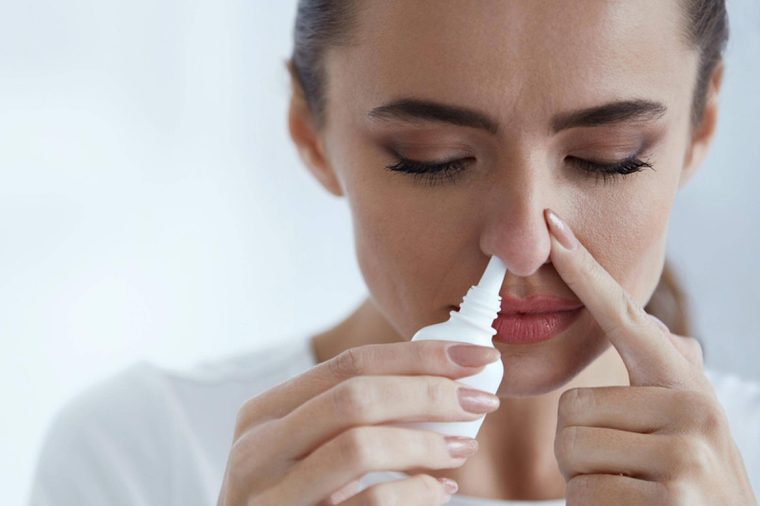
Irrigate your nose
Dr. Zipkin says nasal irrigation isn’t yet “widely adopted by the medical community as ways to prevent illness.” But some research has shown it to have positive effects against colds and flu. The idea behind washing out your nasal passages with saline water is to thin mucus and help the fine hairs in your nose more effectively wash germs out. It must be done properly, though, to prevent infection—only use distilled or previously boiled water, warns the FDA. Find out more habits doctors use to avoid cold and flu.
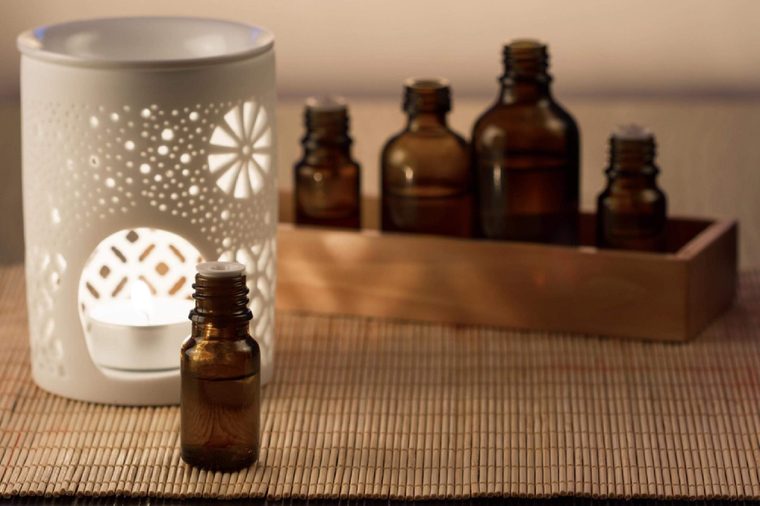
Use essential oils
It may sound far-fetched, but using essential oils may actually help prevent sickness. After all, many conventional medicines were originally derived from plants, too. In a laboratory study, an essential oil blend was effective at fighting off the flu. Doctors from Johns Hopkins have even suggested essential oils might be the new antibiotics. “Many are known to possess significant antimicrobial activity against a wide range of microorganisms,” they wrote in an article in the Journal of Infectious Diseases and Preventative Medicine.
